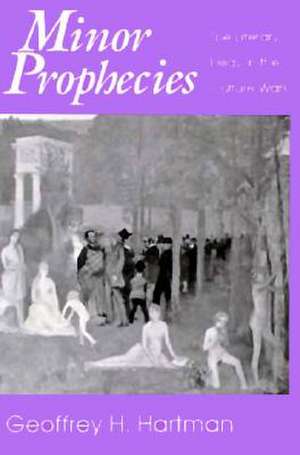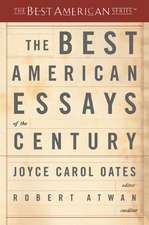Minor Prophecies – The Literary Essay in the Culture Wars: Literary Essay in the Culture Wars
Autor Geoffrey H. Hartmanen Limba Engleză Hardback – 2 oct 1991
Preț: 502.83 lei
Preț vechi: 653.04 lei
-23% Nou
96.21€ • 100.46$ • 79.63£
Carte tipărită la comandă
Livrare economică 04-18 aprilie
Specificații
ISBN-10: 0674576365
Pagini: 264
Dimensiuni: 165 x 236 x 24 mm
Greutate: 0.49 kg
Ediția:New.
Editura: Harvard University Press
Descriere
Hartman's book is both a survey of the history of modern literary criticism and a strategic intervention. First he presents an account of the culture of criticism since the late 19th century. He then widens the focus to provide a picture of the critical essay from 1700 to the 1990s in order to show that a major change in style took place after 1950. Two chapters focus on F.R. Leavis and Paul de Man, central - and controversial - figures in academic criticism. Hartman attends to major developments on the continent and in Anglo-American circles that have disrupted the calm of what he calls the friendship or conversational style. On the one hand, critics and thinkers have pursued strange gods in order to enrich and sharpen their critical style. This change Hartman welcomes. On the other hand, along with a renewed interest in politics and historical speculation, a didactic and moralistic tone has again entered the scene. Hartman rejects this new moralism. The author defends the reading of the text of criticism as carefully as the text of literature. He argues for a broader conception of critical style, one that would support the open and conversational voice of the public critic as well as the inventive and innovative practice of the technical critic. Hartman sets before out an ideal of literary criticism that can acknowledge theory yet does not shrink from a sustained, text-centered response.

